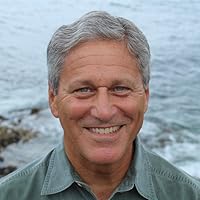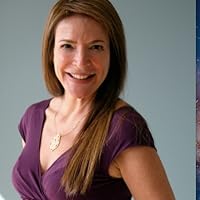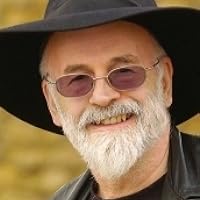Whale Quotes
Quotes tagged as "whale"
Showing 1-30 of 50

“There are people in this world who can wear whale masks and people who cannot, and the wise know to which group they belong.”
― Jitterbug Perfume
― Jitterbug Perfume

“Call me Ishmael. Some years ago--never mind how long precisely--having little or no money in my purse, and nothing particular to interest me on shore, I thought I would sail about a little and see the watery part of the world. It is a way I have of driving off the spleen and regulating the circulation. Whenever I find myself growing grim about the mouth; whenever it is a damp, drizzly November in my soul; whenever I find myself involuntarily pausing before coffin warehouses, and bringing up the rear of every funeral I meet; and especially whenever my hypos get such an upper hand of me, that it requires a strong moral principle to prevent me from deliberately stepping into the street, and methodically knocking people's hats off--then, I account it high time to get to sea as soon as I can. This is my substitute for pistol and ball. With a philosophical flourish Cato throws himself upon his sword; I quietly take to the ship. There is nothing surprising in this.
If they but knew it, almost all men in their degree, some time or other, cherish very nearly the same feelings towards the ocean with me.
There now is your insular city of the Manhattoes, belted round by wharves as Indian isles by coral reefs--commerce surrounds it with her surf. Right and left, the streets take you waterward. Its extreme downtown is the battery, where that noble mole is washed by waves, and cooled by breezes, which a few hours previous were out of sight of land. Look at the crowds of water-gazers there.
Circumambulate the city of a dreamy Sabbath afternoon. Go from Corlears Hook to Coenties Slip, and from thence, by Whitehall, northward. What do you see?--Posted like silent sentinels all around the town, stand thousands upon thousands of mortal men fixed in ocean reveries. Some leaning against the spiles; some seated upon the pier-heads; some looking over the bulwarks of ships from China; some high aloft in the rigging, as if striving to get a still better seaward peep. But these are all landsmen; of week days pent up in lath and plaster--tied to counters, nailed to benches, clinched to desks. How then is this? Are the green fields gone? What do they here?
But look! here come more crowds, pacing straight for the water, and seemingly bound for a dive. Strange! Nothing will content them but the extremest limit of the land; loitering under the shady lee of yonder warehouses will not suffice. No. They must get just as nigh the water as they possibly can without falling in. And there they stand--miles of them--leagues. Inlanders all, they come from lanes and alleys, streets and avenues--north, east, south, and west. Yet here they all unite. Tell me, does the magnetic virtue of the needles of the compasses of all those ships attract them thither?
Once more. Say you are in the country; in some high land of lakes. Take almost any path you please, and ten to one it carries you down in a dale, and leaves you there by a pool in the stream. There is magic in it. Let the most absent-minded of men be plunged in his deepest reveries--stand that man on his legs, set his feet a-going, and he will infallibly lead you to water, if water there be in all that region. Should you ever be athirst in the great American desert, try this experiment, if your caravan happen to be supplied with a metaphysical professor. Yes, as every one knows, meditation and water are wedded for ever.”
― Moby-Dick or, The Whale
If they but knew it, almost all men in their degree, some time or other, cherish very nearly the same feelings towards the ocean with me.
There now is your insular city of the Manhattoes, belted round by wharves as Indian isles by coral reefs--commerce surrounds it with her surf. Right and left, the streets take you waterward. Its extreme downtown is the battery, where that noble mole is washed by waves, and cooled by breezes, which a few hours previous were out of sight of land. Look at the crowds of water-gazers there.
Circumambulate the city of a dreamy Sabbath afternoon. Go from Corlears Hook to Coenties Slip, and from thence, by Whitehall, northward. What do you see?--Posted like silent sentinels all around the town, stand thousands upon thousands of mortal men fixed in ocean reveries. Some leaning against the spiles; some seated upon the pier-heads; some looking over the bulwarks of ships from China; some high aloft in the rigging, as if striving to get a still better seaward peep. But these are all landsmen; of week days pent up in lath and plaster--tied to counters, nailed to benches, clinched to desks. How then is this? Are the green fields gone? What do they here?
But look! here come more crowds, pacing straight for the water, and seemingly bound for a dive. Strange! Nothing will content them but the extremest limit of the land; loitering under the shady lee of yonder warehouses will not suffice. No. They must get just as nigh the water as they possibly can without falling in. And there they stand--miles of them--leagues. Inlanders all, they come from lanes and alleys, streets and avenues--north, east, south, and west. Yet here they all unite. Tell me, does the magnetic virtue of the needles of the compasses of all those ships attract them thither?
Once more. Say you are in the country; in some high land of lakes. Take almost any path you please, and ten to one it carries you down in a dale, and leaves you there by a pool in the stream. There is magic in it. Let the most absent-minded of men be plunged in his deepest reveries--stand that man on his legs, set his feet a-going, and he will infallibly lead you to water, if water there be in all that region. Should you ever be athirst in the great American desert, try this experiment, if your caravan happen to be supplied with a metaphysical professor. Yes, as every one knows, meditation and water are wedded for ever.”
― Moby-Dick or, The Whale

“In life, the visible surface of the Sperm Whale is not the least among the many marvels he presents. Almost invariably it is all over obliquely crossed and re-crossed with numberless straight marks in thick array, something like those in the finest Italian line engravings. But these marks do not seem to be impressed upon the isinglass substance above mentioned, but seem to be seen through it, as if they were engraved upon the body itself. Nor is this all. In some instances, to the quick, observant eye, those linear marks, as in a veritable engraving, but afford the ground for far other delineations. These are hieroglyphical; that is, if you call those mysterious cyphers on the walls of pyramids hieroglyphics, then that is the proper word to use in the present connexion. By my retentive memory of the hieroglyphics upon one Sperm Whale in particular, I was much struck with a plate representing the old Indian characters chiselled on the famous hieroglyphic palisades on the banks of the Upper Mississippi. Like those mystic rocks, too, the mystic-marked whale remains undecipherable.”
― Moby-Dick or, The Whale
― Moby-Dick or, The Whale

“What is the difference between a cathedral and a physics lab? Are not they both saying: Hello? We spy on whales and on interstellar radio objects; we starve ourselves and pray till we're blue.”
― Teaching a Stone to Talk: Expeditions and Encounters
― Teaching a Stone to Talk: Expeditions and Encounters

“The heroic and often tragic stories of American whalemen were renowned. They sailed the world’s oceans and brought back tales filled with bravery, perseverance, endurance, and survival. They mutinied, murdered, rioted, deserted, drank, sang, spun yarns, scrimshawed, and recorded their musings and observations in journals and letters. They survived boredom, backbreaking work, tempestuous seas, floggings, pirates, putrid food, and unimaginable cold. Enemies preyed on them in times of war, and competitors envied them in times of peace. Many whalemen died from violent encounters with whales and from terrible miscalculations about the unforgiving nature of nature itself. And through it all, whalemen, those “iron men in wooden boats” created a legacy of dramatic, poignant, and at times horrific stories that can still stir our emotions and animate the most primal part of our imaginations. “To produce a mighty book, you must choose a mighty theme,” proclaimed Herman Melville, and the epic story of whaling is one of the mightiest themes in American history.”
― Leviathan: The History of Whaling in America
― Leviathan: The History of Whaling in America

“With a frigate’s anchors for my bridle-bitts and fasces of harpoons for spurs, would I could mount that whale and leap the topmost skies, to see whether the fabled heavens with all their countless tents really lie encamped beyond my mortal sight!”
― Moby-Dick or, The Whale
― Moby-Dick or, The Whale

“One of my own stray childhood fears had been to wonder what a whale might feel like had it been born and bred in captivity, then released into the wild-into its ancestral sea-its limited world instantly blowing up when cast into the unknowable depths, seeing strange fish and tasting new waters, not even having a concept of depth, not knowing the language of any whale pods it might meet. It was my fear of a world that would expand suddenly, violently, and without rules or laws: bubbles and seaweed and storms and frightening volumes of dark blue that never end”
― Girlfriend in a Coma
― Girlfriend in a Coma

“Out of the bottomless profundities the gigantic tail seems spasmodically snatching at the highest heaven. So in dreams, have I seen majestic Satan thrusting forth his tormented colossal claw from the flame Baltic of Hell. But in gazing at such scenes, it is all in all what mood you are in; if in the Dantean, the devils will occur to you; if in that of Isaiah, the archangels.”
― Moby-Dick or, The Whale
― Moby-Dick or, The Whale

“I make music for whales, dolphins, ducks, and deaf people. Using only sign language and silence, my songs are meant to swim in your ears using the same power that allows the moon to create the tides.”
― Music is fluid, and my saxophone overflows when my ducks slosh in the sounds I make in elevators.
― Music is fluid, and my saxophone overflows when my ducks slosh in the sounds I make in elevators.

“Two hundred years ago an old Dutch voyager likened its shape to that of a shoemaker’s last. And in this same last or shoe, that old woman of the nursery tale with the swarming brood, might very comfortably be lodged, she and all her progeny.”
― Moby-Dick or, The Whale
― Moby-Dick or, The Whale

“It is not not curious, that so vast a being as the whale should see the world through so small an eye, and hear the thunder through an ear which is smaller than a hare's? But if his eyes were broad as the lens of Herschel's great telescope; and his ears capacious as the porches of cathedrals; would that make him any longer of sight, or sharper of hearing? Not at all. - Why then do you try to "enlarge" your mind? Subtilize it.”
― Moby-Dick or, The Whale
― Moby-Dick or, The Whale

“Joe was right when he said that the whale is just a whale. And so was Leonora when she said the whale is everything. What if we grant the whale his whaleness, grant him furlough from our metaphoric employ, but still allow the contours of his second self - the one we've made - and admit what he's done for us?”
― Make It Scream, Make It Burn
― Make It Scream, Make It Burn

“Swallowed up in the belly of the whale of infatuation, I now needed to distract myself in order to stay happy. Because our unknowable future shadowed the countenance of my soul.”
― Your Blue Is Not My Blue: A Missing Person Memoir
― Your Blue Is Not My Blue: A Missing Person Memoir

“When she was free, the whale didn’t rush out to sea. Instead, she swam around and around her rescuers in joyous circles. The whale came up to each and every diver one at a time. She nudged them, pushed them gently -– maybe as her way of thanking them. What else could it have been?
Several of the rescuers wept and later said it was the most incredibly beautiful moment of their lives.
They said they would never be the same after the experience.
And that is the best story I’ve heard to explain how it feels when you do a good deed and help somebody. You’ll never be the same after the experience.”
― James Patterson by James Patterson: The Stories of My Life
Several of the rescuers wept and later said it was the most incredibly beautiful moment of their lives.
They said they would never be the same after the experience.
And that is the best story I’ve heard to explain how it feels when you do a good deed and help somebody. You’ll never be the same after the experience.”
― James Patterson by James Patterson: The Stories of My Life

“Tomoe Akagi is known in artistic circles for having beat Nam June Paik to be the first person to perform a work of art inside a whale. Though, I don't think Paik actually wanted to create work inside a whale. His work, Creep into the Vagina of a Live Whale, was about creating an impossible piece of performance art, one that wasn't to be attempted, and could exist only in the minds of the audience. As readers of that instruction, we inevitably imagine ourselves parting the soft flesh of a whale without her noticing, a corridor opening up, stepping inside, breaking through her hymen, creeping into her uterus. I couldn't work out how I felt about this work when I read it for the first time; I remember her thinking, Ugh, of course he has chosen a female animal, and of course he has us enter her without her realizing. I couldn't tell what the point of the work was. It seemed to only exist to be shocking. Akagi had sewn himself into the stomach of a deceased beached whale somewhere in Scandinavia, where whale meat is eaten, and, after that, he was known as the artist who beat Nam June Paik. Unlike that of the other Fluxus artists, Akagi's work wasn't completely nihilistic; he wrote a long letter to the whale, apologizing for his generation's mistreatment of the environment, and sewed it into the whale's stomach with himself.”
― Woman, Eating
― Woman, Eating

“The word “whale” was almost always synonymous with monster and interchangeable with giant.”
― The Killer Whale Who Changed the World
― The Killer Whale Who Changed the World

“The sensation I was feeling on the clifftop was some sort of reverberation in the air itself.… The whale had submerged and I was still feeling something. The strange rhythm seemed now to be coming from behind me, from the land, so I turned to look across the gorge … where my heart stopped.… Standing there in the shade of the tree was an elephant … staring out to sea!… A female with a left tusk broken off near the base.… I knew who she was, who she had to be. I recognized her from a color photograph put out by the Department of Water Affairs and Forestry under the title “The Last Remaining Knysna Elephant.” This was the Matriarch herself.… She was here because she no longer had anyone to talk to in the forest. She was standing here on the edge of the ocean because it was the next, nearest, and most powerful source of infrasound. The underrumble of the surf would have been well within her range, a soothing balm for an animal used to being surrounded by low and comforting frequencies, by the lifesounds of a herd, and now this was the next-best thing. My heart went out to her. The whole idea of this grandmother of many being alone for the first time in her life was tragic, conjuring up the vision of countless other old and lonely souls. But just as I was about to be consumed by helpless sorrow, something even more extraordinary took place.… The throbbing was back in the air. I could feel it, and I began to understand why. The blue whale was on the surface again, pointed inshore, resting, her blowhole clearly visible. The Matriarch was here for the whale! The largest animal in the ocean and the largest living land animal were no more than a hundred yards apart, and I was convinced that they were communicating! In infrasound, in concert, sharing big brains and long lives, understanding the pain of high investment in a few precious offspring, aware of the importance and the pleasure of complex sociality, these rare and lovely great ladies were commiserating over the back fence of this rocky Cape shore, woman to woman, matriarch to matriarch, almost the last of their kind. I turned, blinking away the tears, and left them to it. This was no place for a mere man.”
― Beyond Words: What Animals Think and Feel
― Beyond Words: What Animals Think and Feel
“We better rethink our future to disguise our ongoing damage to the climate, this sperm whale ecosystem can’t go on forever let revolutionize our strike to make earth a finer place.”
―
―
“देखता नहीं उसके दिल की गहराई
अपनी चोट का नाप बता देता है
व्हेल नालों में नहीं रहती पगले
DEKHTA NAHIN USKE DIL KI GEHRAYEE
APNI CHOTT KA NAAP BATA DETA HAI
WHALE NALE MEIN NAHIN REHTI PAGLE
HE DOESN'T ESTIMATE THE DEPTH OF HER HEART
AS HE POURS OUT THE DEPTH OF HIS OWN HURT
WHALES DON'T LIVE IN DIRTY DRENCHES, IDIOT”
―
अपनी चोट का नाप बता देता है
व्हेल नालों में नहीं रहती पगले
DEKHTA NAHIN USKE DIL KI GEHRAYEE
APNI CHOTT KA NAAP BATA DETA HAI
WHALE NALE MEIN NAHIN REHTI PAGLE
HE DOESN'T ESTIMATE THE DEPTH OF HER HEART
AS HE POURS OUT THE DEPTH OF HIS OWN HURT
WHALES DON'T LIVE IN DIRTY DRENCHES, IDIOT”
―
“浅い恋人(ひと)
我が愛はより深し
どぶのクジラ
Asai Hito (5)
WagaAiwa Yori Fukashi (9)
Dobuno kujira (6)
Shallow lover
My love is deeper
whale in the drench
तंगदिल सनम
मेरा इश्क़ गहरा
नाले में व्हेल
TANGDIL SANAM
MERA ISHQ GEHRA
NALE MEIN WHALE”
―
我が愛はより深し
どぶのクジラ
Asai Hito (5)
WagaAiwa Yori Fukashi (9)
Dobuno kujira (6)
Shallow lover
My love is deeper
whale in the drench
तंगदिल सनम
मेरा इश्क़ गहरा
नाले में व्हेल
TANGDIL SANAM
MERA ISHQ GEHRA
NALE MEIN WHALE”
―

“I peeked out from under the tarp to see a gray whale breaching. It cut through the haze and spiraled upward, propelling its entire body through the air right next to the tiny rowboat. It was as big as a yellow school bus and crusted over with a thick layer of barnacles.
I was intensely nervous about its size. The only time I'd ever seen a whale was in an aquarium in a Florida resort. This one seemed much larger. And infinitely freer. It was the first time in my life I understood how scary and dangerous things that are free really are.”
― Hothouse Flower and the Nine Plants of Desire
I was intensely nervous about its size. The only time I'd ever seen a whale was in an aquarium in a Florida resort. This one seemed much larger. And infinitely freer. It was the first time in my life I understood how scary and dangerous things that are free really are.”
― Hothouse Flower and the Nine Plants of Desire

“(The Wee Free Men) is a children’s book because… 2 It has a nine-year-old heroine. This is good enough for the industry, which believes that books with children as the main protagonist are de facto books for children. For similar reasons, Moby Dick is very popular among whales.”
―
―

“I was there long before you were born, he wanted to say. I've known this kanamaluka [River Tamar] longer than I've known your mother. And as he cast around for what that meant, how important his connection to the river was, his mind snagged on the little boat he'd once owned. How he'd freed it from a prison of thick lead paint. He wanted to tell is daughters about the glory he'd restored it to. How intoxicating the sight of it had been. How the scent of its timber had put him under a spell he had never truly recovered from. What discovering Huon pine does to a person. How it had rode the river so cleanly, so joyously, like a wish come true. How short his time with it was, how hard the summer had been, how he'd sold the boat to a rich little man, a stranger whose name he soon forgot. How it never carried him to the river mouth. I didn't get to go back, he wanted to tell his daughters. I didn't get to return to the place my father took us, your uncles and me, where the mad whale - do you remember the mad whale, do you remember the stories, did anyone ever tell you? - raised its twelve-foot tail above our borrowed boat, hiding the moon's light, poised to smash us into red flotsam. Only it didn't, he wanted to say. It could've, but it didn't. With colossal gentleness it lowered its flukes into the water beside us. Loosed a spray of vapour from its blowhole. Rolled onto its back and exposed to us the creamy striations of its belly. Twisted through the water so that the hugeness of its eye was close to us, a couple of yards from the boat. An eye shockingly familiar in its mammalian warmth. An eye filled with starlight: an eye lit by a half-dark heaven. (p.199)”
― Limberlost
― Limberlost

“They watched the whales float in the murk, blowing spray into the air. After a minute, the mother showed them her eye again, unblinking and huge. Then she and her calf dipped back under the surface. It was an impossible thing: so many tons of flesh, disappearing in an instant. Their tails emerged fifty yards away, saluting the stars. Hanging high and wide. Ned's father started the motor.
'She's as interested in us as we are in dragonflies'. The engine smoked to life. He let it idle. Turned to his sons. 'If you're going to fear something, boys, it's best to understand it.' He laid a hand on Ned's scalp, his rough skin stilling Ned's shivers. 'To come right up against it.' (p.219)”
― Limberlost
'She's as interested in us as we are in dragonflies'. The engine smoked to life. He let it idle. Turned to his sons. 'If you're going to fear something, boys, it's best to understand it.' He laid a hand on Ned's scalp, his rough skin stilling Ned's shivers. 'To come right up against it.' (p.219)”
― Limberlost
“I know this is fun for you. You get to travel around, act superior than everyone else. Plus you get to go home, get married, get some boring job, have tons of kids, and when you die you get your own planet. It all sounds pretty awesome. But, there are other kinds of people. People like Charlie, for whom this amazing plan doesn’t fit. You can’t fit a round peg in a square hole, and you certainly can’t fit a morbidly obese gay peg in a Mormon hole. That came out wrong.”
― The Whale
― The Whale
“I marveled that he had managed to make the crew share his hatred and even take on his enemy as their own.”
―
―

“In all the art Jay’s seen, sperm whales are barges of fat. But when the whale before him curls its fluked tail to the side, muscles larger than Jay pull tight, pinching seams through the blubber. It must be the strongest thing that ever lived, matched only by its unexpected grace. It holds the pose: a comma in a sentence so large only gods can read it.”
― Whalefall
― Whalefall
All Quotes
|
My Quotes
|
Add A Quote
Browse By Tag
- Love Quotes 97.5k
- Life Quotes 76k
- Inspirational Quotes 73k
- Humor Quotes 43.5k
- Philosophy Quotes 29.5k
- Inspirational Quotes Quotes 27k
- God Quotes 26k
- Truth Quotes 23.5k
- Wisdom Quotes 23.5k
- Romance Quotes 23k
- Poetry Quotes 22k
- Death Quotes 20k
- Happiness Quotes 18.5k
- Life Lessons Quotes 18.5k
- Hope Quotes 18k
- Faith Quotes 18k
- Quotes Quotes 16.5k
- Inspiration Quotes 16.5k
- Spirituality Quotes 15k
- Religion Quotes 15k
- Motivational Quotes 15k
- Writing Quotes 15k
- Relationships Quotes 14.5k
- Life Quotes Quotes 14k
- Love Quotes Quotes 14k
- Success Quotes 13.5k
- Time Quotes 12.5k
- Motivation Quotes 12k
- Science Quotes 11.5k
- Motivational Quotes Quotes 11.5k

